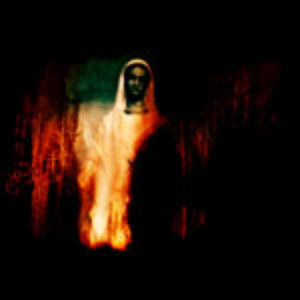
| Trackimage | Playbut | Trackname | Playbut | Trackname |
|---|---|---|---|---|
| 84827721 | Play | Black Magic | 00:00 Tools | |
| 84827722 | Play | Bitch | 00:00 Tools | |
| 84827723 | Play | Nightbreed | 00:00 Tools | |
| 84827724 | Play | Pagan Imagery (John Tejada Remix) | 00:00 Tools | |
| 84827728 | Play | Phases | 00:00 Tools | |
| 84827725 | Play | Pagan Imagery | 00:00 Tools | |
| 84827726 | Play | Orange | 00:00 Tools | |
| 84827727 | Play | Black Magic (Dub) | 00:00 Tools | |
| 84827729 | Play | Dead Man's Funk | 00:00 Tools | |
| 84827730 | Play | Red Rum | 00:00 Tools | |
| 84827731 | Play | Sun In the Sky | 00:00 Tools | |
| 84827732 | Play | Lily-Jean Lonely | 00:00 Tools | |
| 84827733 | Play | Sad Bastard World | 00:00 Tools | |
| 84827739 | Play | Black Magic - Original Mix | 00:00 Tools | |
| 84827736 | Play | Voodoo Magic | 00:00 Tools | |
| 84827734 | Play | Nightbreed (Hellhouse Mix) | 00:00 Tools | |
| 84827735 | Play | la belle indifference | 00:00 Tools | |
| 84827737 | Play | Polanski | 00:00 Tools | |
| 84827738 | Play | Monologue Blue | 00:00 Tools | |
| 84827740 | Play | Pagan Imagery - Original | 00:00 Tools |

-
- 1,519
- plays
-
- 443
- listners
-
- 1519
- top track count
In late June 2006, friends Brandon Schneider (of Modern Films) and Leighton Peterson came together to form a project known as the Hellfire Club. The project was years in the making and was finally granted life after a marathon recording session of the band's first home-recorded EP, the Black Heartland EP. Withdrawing from their respective local music scenes, the two sought to amalgamize the many styles of music that influenced them throughout their creative development. Eventually, the two pioneered a whacky subgenre of music that they've since dubbed "bootgaze" -- shoegaze, trip-hop, acoustic powerpop, post-rock, blues, folk -- a melding of all of this and more. Oddly enough, Peterson and Schneider arrived at this venture independently, thereby cementing their decision to form a band. Borrowing from both regional mythology and the legends behind the band's name, Peterson and Schneider seek to convey an experience to their audience through sharp narration. An obvious focus on small-town life and what dwells within comes across in the music as well as the band's lyrics. The straightforward, often grating narration serve to better paint the picture of Peterson's and Schneider's experiences as residents in small towns. Musically, the Hellfire Club, always with Schneider and Peterson at the core, play with many different musicians. In fact, you may never know which musicians (other than Peterson and Schneider, of course) you might be seeing when you go to a Hellfire Club show. It's all a part of the magic of the moment. A rather unique facet of the band is that it exists in different forms simultaneously. Breaking from the rigid mold of the "traditional" band, the Hellfire Club has chosen to exist as seperate, simultaneous projects under the central Hellfire Club moniker. Two forms of the band exist: Hellfire Club 303 (based in Denver, Colorado and headed up by Peterson) and Hellfire Club 402 (based in Lincoln, Nebraska and headed up by Schneider). This will create a bigger movement and will expose more people to the Hellfire Club experience. In this way, and because Hellfire Club shows will feature any number of other media besides music (films, firedancers, and so forth), the project exists more as a collective than as a band. Only with this artistic freedom can Peterson and Schneider truly explore the world around them artistically. Read more on Last.fm. User-contributed text is available under the Creative Commons By-SA License; additional terms may apply.